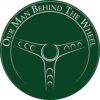Anyone who’s into Scandi noir crime fiction will ‘get’ the city of Umea instinctively. Stieg Larsson, the godfather of the genre who sold more than 80 million thrillers, lived and worked in Umea for a long time. In fact, he even left everything to the Umea branch of the Communist Workers League according to a 1977 version of his will (28 years before he eventually died) that was subsequently disputed.
Umea is a quiet university town, not far from the Arctic Circle, with low houses that are covered in snow for much of the time. As well as the piercing cold, with temperatures south of minus 10 degrees centigrade for much of the time, the first thing you notice is the fact that every sound is muffled.
Which is what helps to give the whole place a slight air of disorientating malice, with an eery silence that leaves plenty of space for your imagination to roam: undoubtedly helping to unleash Larsson’s dark imagination.
By night in particular, there aren’t many people around – and who can blame them, with the temperatures plummeting to minus 20 or even lower? To survive in this harsh climate, everyone is trained in survival, and the typically Swedish utilitarian approach to life comes to the fore. Everything is fit for purpose: from your underfloor heating to your Volvo.
And you’ll get to see plenty of Volvos on Rally Sweden – the only snow and ice round of the World Rally Championship – which moved to Umea this year after several years based further south in Karlstad.
The city of Karlstad is the capital of Sweden’s Varmland province, which – as the name suggests – is slightly problematic if you’re trying to host a rally that’s predicated on ice and snow. Hence the move north this year, avoiding the pesky sunshine and higher temperatures that has previously turned many of those snowy and icy roads to muddy slush.

Rallying doesn’t have the popularity of Formula 1, but the drivers who take part in the World Rally Championship are the most talented in the world, as they have to perform on every type of road and weather. From the rocks and sand of the African desert on the Safari Rally in Kenya to the snow and ice of Sweden.
As part of my job, I’ve travelled the world following many events on the World Rally Championship: probably more than 250. But of all of them, Rally Sweden is one of the most special, because it’s so unique. And there’s a certain frisson – quite literally – about working in such extremely cold temperatures.
The cars use special tyres with spikes in them, to bite into the ice and snow. As a result, they benefit from a phenomenal amount of grip, on a surface that is often too slippery even to stand up on. The special stages that make up the route are surrounded by tall snowbanks, which the cars ‘lean’ against when they’re driving in order to get round the corner. As a result, Rally Sweden is a bit like watching a giant pinball machine. And there’s a fine line between using those snowbanks as a guide, and simply crashing through them like a snowplough…
The drivers most capable of treading that delicate tightrope are the ones who succeed. This year’s Rally Sweden winner was 21-year-old Kalle Rovanperä in a Toyota; whose father Harri won the same event in 2001, with Peugeot. And this made it the only rally which has ever been won both by a father and his son.
That’s not widely known, but rallying has always been one of the best-kept secrets in motorsport, where competition meets travel and adventure. There would be no other earthly reason to set foot in Umea otherwise. Unless, of course, you had a particular hankering to visit Sweden’s best-known guitar museum or sample the local delicacy of surstromming: fermented herring, which is left to decompose in its can. I experienced neither. But I did see some top class drivers on the very limits of car control. And feel the thrill of fear that only a remote Scandinavian winter in Sweden’s crime fiction capital can properly induce.
Author Bio:
Anthony Peacock works as a journalist and is the owner of an international communications agency, all of which has helped take him to more than 80 countries across the world.
Photographs courtesy of Pirelli


Be the first to comment